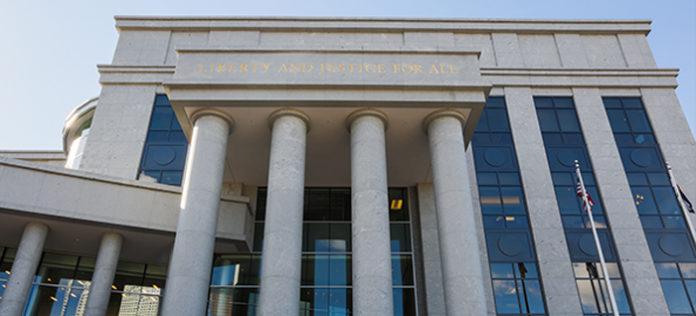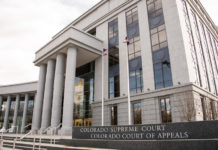
Colorado bar associations have joined together in a rare move to call for action in the wake of a judicial branch scandal.
Following the allegations of misconduct in the Colorado judiciary, eight bar associations and the Colorado Bar Association’s young lawyer’s division are pushing for the adoption of a rule that would require diversity and equity to be included in legal education requirements throughout the state. In a rare letter, the bar associations united to call on the Colorado Supreme Court to address equity issues in the state’s legal community.
The allegations leveled against the judicial branch — including allegations of sexual misconduct, sexual discrimination, destruction of evidence, pay-offs, a judicial coverup, resignations of key personnel in disgust and a culture of inappropriate behavior among the judicial staff — arose from a Denver Post investigation of a 2018 a multi-million-dollar contract allegedly awarded to the former chief of staff for the State Court Administrator’s Office, to keep her from making the misconduct public.
While the branch prepared to investigate the allegations, eight bar associations and the young lawyer division representing lawyers across the state, signed on to a letter demanding change. The letter was formally signed by the presidents, presidents-elect and immediate past presidents of the signatory bars.
“Our courts are in crisis and there is a pressing need for a culture change,” the letter begins. “The recent allegations of sexual harassment and sex discrimination in our Judicial Department are of grave concern and must be addressed swiftly and appropriately.”
The alleged instances in the branch are “unfortunate examples of what happens when a profession fails to recognize the bias and systemic inequity that permeates it,” the letter states.
“As a coalition of leaders from the diversity bar associations and the two largest general bars in our state, the Presidents’ Diversity Council has been advocating for our profession to do better,” the letter states.
The President’s Diversity Council, consisting of leaders of bar associations representing more than 18,000 attorneys, calls on the Supreme Court to finish what it helped start by adopting the Equity Diversity and Inclusivity Continuing Legal Education rule, according to the letter. By adopting the rule, the council argues that it will make “equity, diversity, and inclusivity training a part of every attorney’s continuing education”
The letter, signed by representatives from the Colorado Bar, Denver Bar, Colorado Hispanic Bar, Colorado LGBT Bar, the Asian Pacific American Bar, Sam Cary Bar, Colorado Women’s Bar and the South Asian Bar associations and the Colorado Bar’s Young Lawyers Division, asserts that the current crisis isn’t unique to the judiciary, but represents issues affecting the entirety of the legal profession.
The letter points to the killing of unarmed Black men and women last year and the subsequent discussion on racial justice, adding that the same council convened to look past their own organizations and push to address inequities, bias and structural issues undermining public confidence in the legal system. It also points to the council’s condemnation of hate directed at Asian Americans in the wake of COVID-19, warning that “this same prejudice is once again spreading.”
The proposed EDI rule, now under consideration by the Colorado Supreme Court, would require every licensed attorney in the state to have at minimum two hours of education focused on equity, diversity and inclusivity, according to the letter.
“The proposed rule represents a small but vital step towards addressing issues such as racism, sexism, xenophobia, homophobia, and transphobia across our profession,” the letter states. “Perhaps more importantly, by embracing EDI education our Supreme Court and our profession can send a message to our colleagues who experience bias: We hear you, we know it happens, and as a profession we will not tolerate it.”
Opposition to the EDI CLE is expected, according to the letter, as it is a proposed rule at public hearing. The opposition will come from “the same ranks of privileged attorneys who have made Law one of the least diverse professions and who were the architects of the culture behind our latest crisis — a culture that denies the existence of bias, and thereby perpetuates it.”
The letter calls on the leaders, colleagues and community stakeholders of the profession to join the effort to make the EDI rule a reality.
“This small but concrete action will promote cultural competency and public confidence in our legal system,” the letter states.




